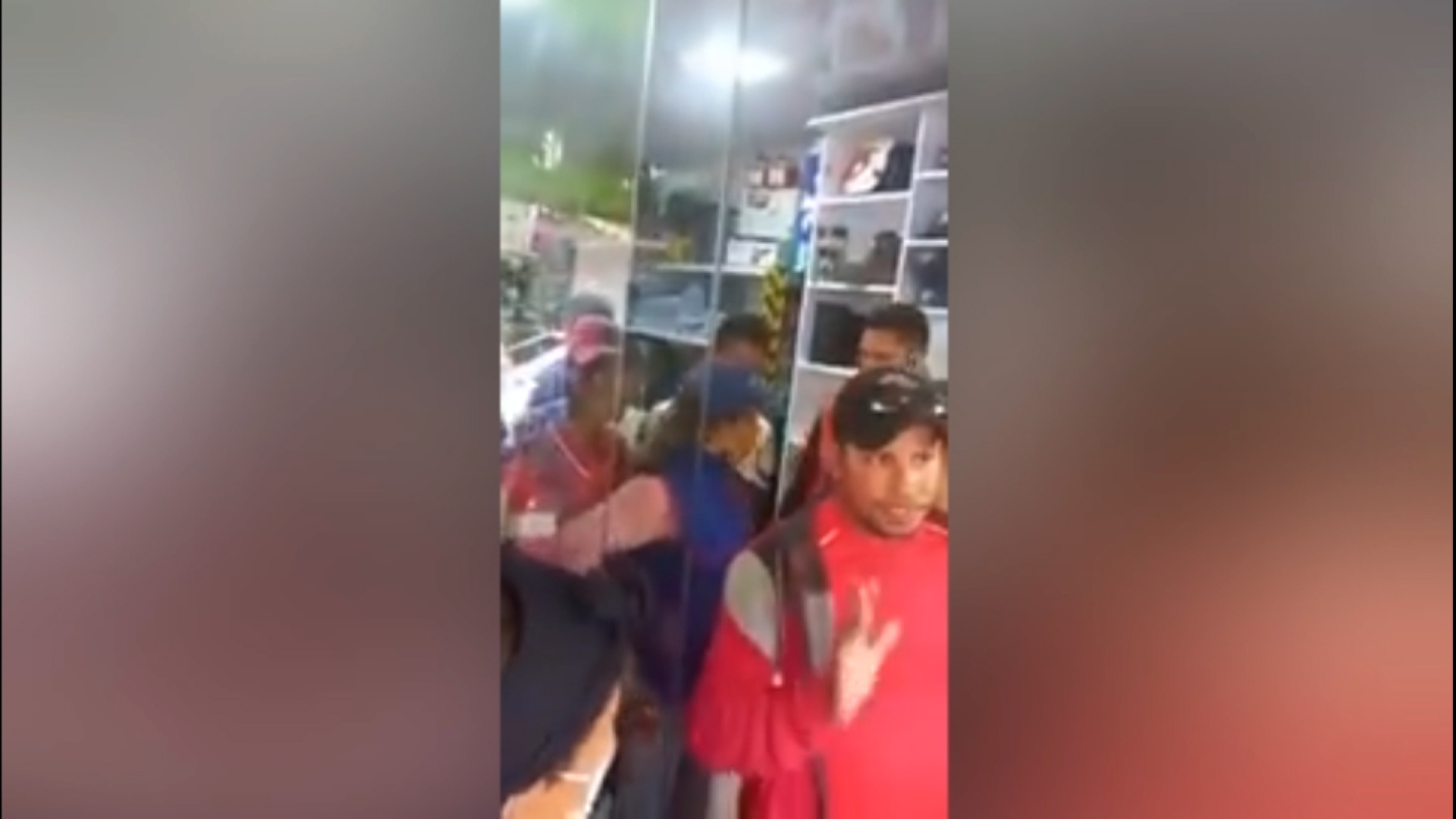The death of a Venezuelan child and youth in Colombia is fast becoming a diplomatic dispute with neighboring Venezuela.
The two Venezuelans, ages 12 and 18, were apprehended by passersby in the Colombian town of Tibú last week, and accused of attempting to rob a store, according to a statement from the regional police. They were tied up and their hands tied, according to the statement.
In a widely circulated video seen by Citizen Free Press, they are surrounded by people shouting and threatening to parade them through the city.
Both were later found dead with bullets to the head and a sign reading “thief” on their bodies, a police source told Citizen Free Press, who asked not to be identified because they were not authorized to discuss the matter.
It is unclear who killed the children. Tibú is a remote town in the rural region of Catatumbo, where guerrilla groups and drug trafficking organizations are known to control large areas of the territory.
On Monday, Colonel Carlos Martínez of the Colombian police announced that an investigation into the murder had been launched and blamed local guerrilla groups.
But Venezuelan officials were quick to show their dissatisfaction with the Colombian authorities’ work to ensure justice and took the murder as evidence of a broader phenomenon.
On Wednesday, Venezuela’s Vice President Delcy Rodríguez cited the deaths as evidence of xenophobia and deadly persecution of Venezuelan migrants.
“The truth is that our migrants are being killed in Colombia,” he said during a press conference in Caracas, and promised to raise the issue with multilateral organizations.
While millions of migrants moved from Colombia to Venezuela in the 20th century to escape the drug-related conflict in their country, the trend has been reversed in recent years due to Venezuela’s economic collapse and political crisis. There are currently more than 1.8 million Venezuelan migrants in Colombia, the world’s largest community of Venezuelans abroad.
Colombian President Iván Duque has received international praise for granting Temporary Protected Status (TPS) for 10 years to Venezuelan migrants, allowing them to enroll their children in school and receive health coverage from the Colombian State.
Also on Wednesday, Duque personally handed over identity documents to the first migrant under TPS, a 49-year-old engineer from Acarigua, Venezuela, who moved to Bogotá in 2017.
“Colombia welcomes you with open arms, very happy to visit you,” Duque said just as Rodríguez accused the Colombian authorities of failing the migrants.
Colombia and Venezuela have not had diplomatic relations since 2019, when the Bogotá government, along with more than 50 countries, including the United States, officially recognized Venezuelan opposition leader Juan Guaidó as the legitimate president of the country.

